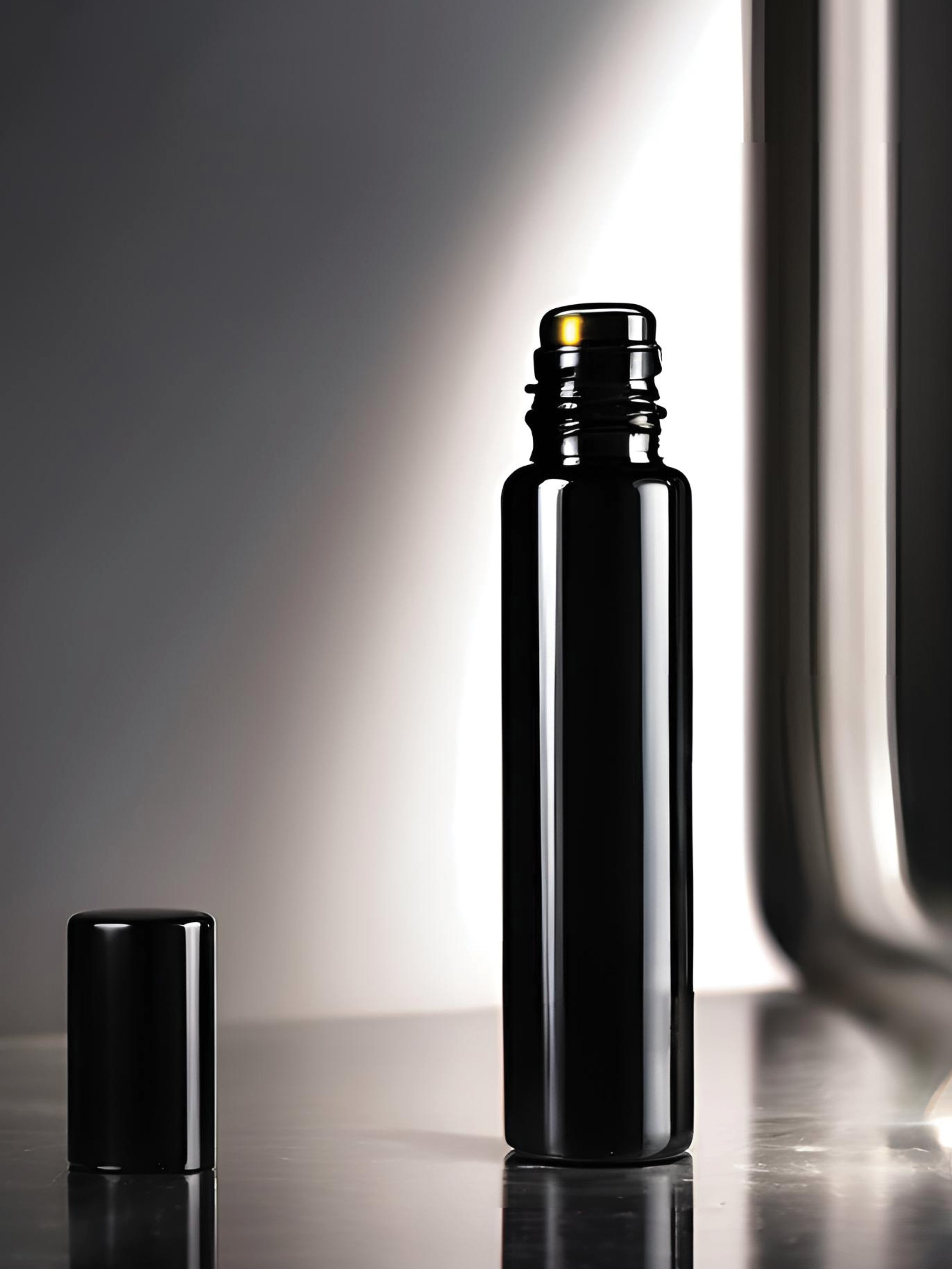 Image 1 of 3
Image 1 of 3

 Image 2 of 3
Image 2 of 3

 Image 3 of 3
Image 3 of 3




LOTUS WHITE ABSOLUTE OIL
Nelumbo nucifera, commonly known as lotus, is a plant that has been valued for its cultural and medicinal significance for centuries. While the essential oil derived from lotus flowers is not as widely studied as some other essential oils, it is believed to offer several potential benefits and can be used in aromatherapy. Here are some of the reported benefits and uses of Nelumbo nucifera essential oil:
Relaxation and stress relief: Lotus essential oil is often used in aromatherapy to promote relaxation and relieve stress. Its soothing aroma may help calm the mind and promote a sense of tranquility.
Mood enhancement: The fragrance of lotus essential oil is known for its uplifting properties. It may help improve mood, uplift spirits, and promote a sense of well-being.
Meditation and spirituality: Lotus has long been associated with spiritual practices in various cultures. The essential oil can be used during meditation or spiritual rituals to create a serene and harmonious atmosphere, aiding in focus and mindfulness.
Skin care: Lotus essential oil is believed to have skin-nourishing properties. It is sometimes used in skincare products to help moisturize, soften, and rejuvenate the skin. However, it's important to note that lotus essential oil should be used in dilution with a carrier oil before applying it to the skin.
Aphrodisiac properties: In some traditional systems of medicine, lotus essential oil is considered to be an aphrodisiac, believed to enhance feelings of intimacy and sensuality.
Anti-inflammatory effects: Lotus essential oil is thought to possess anti-inflammatory properties, which may be beneficial in relieving inflammation-related conditions such as arthritis or muscle soreness. However, more scientific research is needed to confirm these effects.
It's worth mentioning that while Nelumbo nucifera essential oil is generally considered safe for most people when used properly, it's always recommended to perform a patch test before applying it to the skin and to consult with a qualified aromatherapist or healthcare professional for guidance on proper usage and potential contraindications.
Nelumbo nucifera, commonly known as lotus, is a plant that has been valued for its cultural and medicinal significance for centuries. While the essential oil derived from lotus flowers is not as widely studied as some other essential oils, it is believed to offer several potential benefits and can be used in aromatherapy. Here are some of the reported benefits and uses of Nelumbo nucifera essential oil:
Relaxation and stress relief: Lotus essential oil is often used in aromatherapy to promote relaxation and relieve stress. Its soothing aroma may help calm the mind and promote a sense of tranquility.
Mood enhancement: The fragrance of lotus essential oil is known for its uplifting properties. It may help improve mood, uplift spirits, and promote a sense of well-being.
Meditation and spirituality: Lotus has long been associated with spiritual practices in various cultures. The essential oil can be used during meditation or spiritual rituals to create a serene and harmonious atmosphere, aiding in focus and mindfulness.
Skin care: Lotus essential oil is believed to have skin-nourishing properties. It is sometimes used in skincare products to help moisturize, soften, and rejuvenate the skin. However, it's important to note that lotus essential oil should be used in dilution with a carrier oil before applying it to the skin.
Aphrodisiac properties: In some traditional systems of medicine, lotus essential oil is considered to be an aphrodisiac, believed to enhance feelings of intimacy and sensuality.
Anti-inflammatory effects: Lotus essential oil is thought to possess anti-inflammatory properties, which may be beneficial in relieving inflammation-related conditions such as arthritis or muscle soreness. However, more scientific research is needed to confirm these effects.
It's worth mentioning that while Nelumbo nucifera essential oil is generally considered safe for most people when used properly, it's always recommended to perform a patch test before applying it to the skin and to consult with a qualified aromatherapist or healthcare professional for guidance on proper usage and potential contraindications.
Nelumbo nucifera, commonly known as lotus, is a plant that has been valued for its cultural and medicinal significance for centuries. While the essential oil derived from lotus flowers is not as widely studied as some other essential oils, it is believed to offer several potential benefits and can be used in aromatherapy. Here are some of the reported benefits and uses of Nelumbo nucifera essential oil:
Relaxation and stress relief: Lotus essential oil is often used in aromatherapy to promote relaxation and relieve stress. Its soothing aroma may help calm the mind and promote a sense of tranquility.
Mood enhancement: The fragrance of lotus essential oil is known for its uplifting properties. It may help improve mood, uplift spirits, and promote a sense of well-being.
Meditation and spirituality: Lotus has long been associated with spiritual practices in various cultures. The essential oil can be used during meditation or spiritual rituals to create a serene and harmonious atmosphere, aiding in focus and mindfulness.
Skin care: Lotus essential oil is believed to have skin-nourishing properties. It is sometimes used in skincare products to help moisturize, soften, and rejuvenate the skin. However, it's important to note that lotus essential oil should be used in dilution with a carrier oil before applying it to the skin.
Aphrodisiac properties: In some traditional systems of medicine, lotus essential oil is considered to be an aphrodisiac, believed to enhance feelings of intimacy and sensuality.
Anti-inflammatory effects: Lotus essential oil is thought to possess anti-inflammatory properties, which may be beneficial in relieving inflammation-related conditions such as arthritis or muscle soreness. However, more scientific research is needed to confirm these effects.
It's worth mentioning that while Nelumbo nucifera essential oil is generally considered safe for most people when used properly, it's always recommended to perform a patch test before applying it to the skin and to consult with a qualified aromatherapist or healthcare professional for guidance on proper usage and potential contraindications.
-
INCI NAME: Nelumbo Nucifera Flower Extract.
ORIGIN: India.
Bottled in Hawai’i.
PART USED: Flowers.
EXTRACTION METHOD: Our range of absolutes has been extracted using modernized technology similar to the ancient method of Enfleurage. The extraction process uses only certified organic solvents, such as fixed oils and alcohol, to coax the aromatic essence out of the plant material. The multi-step process includes first extracting the aromatic oil from the plant material using organic solvents such as fixed oils. After the solvent is removed, what is left behind is a waxy substance called concrete. The aromatic oils are then extracted from the concrete with ethyl alcohol; after the ethyl alcohol is removed, the remaining substance is absolute.
NOTE CLASSIFICATION: Middle Note.
-
Lotus essential oil has a delicate and unique fragrance that blends well with a variety of other essential oils. Here are a few essential oils that are often combined with Nelumbo nucifera essential oil to create pleasing aromatherapy blends:
Lavender: Lotus and lavender essential oils complement each other beautifully. The calming and floral notes of lavender can enhance the relaxation and stress-relieving properties of lotus oil.
Ylang-Ylang: The sweet and exotic aroma of ylang-ylang pairs well with the subtle floral scent of lotus. This combination can create a sensual and uplifting blend.
Geranium: Geranium essential oil has a balancing and harmonizing effect on the mind and body. When combined with lotus oil, it can create a refreshing and uplifting aroma.
Sandalwood: Lotus and sandalwood essential oils have grounding and meditative properties. Blending these two oils can enhance the spiritual and calming aspects of aromatherapy.
Bergamot: The citrusy and uplifting scent of bergamot complements the floral and relaxing aroma of lotus. This combination can help create an atmosphere of positivity and emotional balance.
Frankincense: Frankincense essential oil has been traditionally used for spiritual and meditative purposes. When combined with lotus oil, it can enhance the sense of tranquility and promote a deeper state of relaxation.
Remember to always dilute essential oils properly and use them in accordance with recommended guidelines and safety precautions. The ideal ratio of blending will depend on personal preferences and the desired aroma. Experimenting with different combinations can help you create a blend that suits your individual needs and preferences.
-
They can be inhaled directly from the bottle, diffuser, or humidifier.
They should be diluted with a carrier oil when applied to your skin. We suggest a 4% dilution rate.
You can also add them to your favorite skincare products.
Essential oils are not safe for consumption unless you are under a health practitioner's guidance.
-
100% Pure Essential Oil.
Unrefined, Undiluted, No Fillers, No Synthetics, Organic, and Sustainably sourced.
-
0.17 oz / 5 ml
0.33 oz / 10 ml
Amber glass bottle with euro dropper.
-
Keep out of reach of children. The bottles are a choking hazard. Avoid contact with eyes, inner ears, mucous membranes, and sensitive areas. If you are pregnant, nursing, taking medication, or have a medical condition, consult a health professional prior to use.
Animals are more sensitive to certain scents; consider your pets while choosing essential oils.
While not all essential oils have the same effect on everyone, the key is finding which ones work best for you. You are the individual and know what is best for you. So experiment and find your path.
The products described on this website are not intended to diagnose, treat or prevent any disease or to affect any structure or function of the skin or body. The information on this website is not medical advice and is not a substitute for consulting with a healthcare provider.


